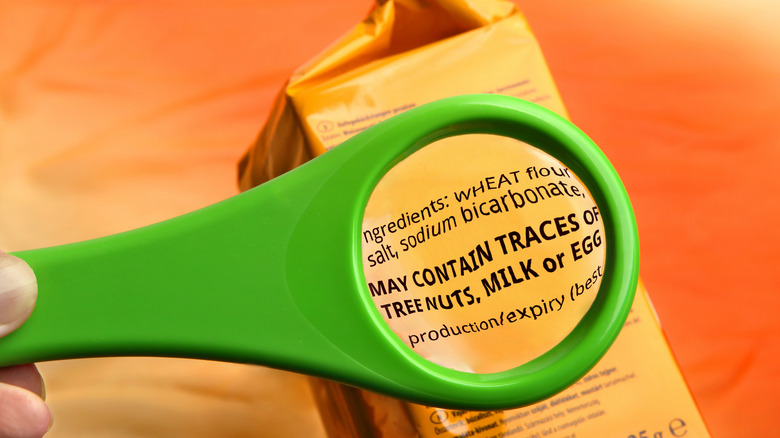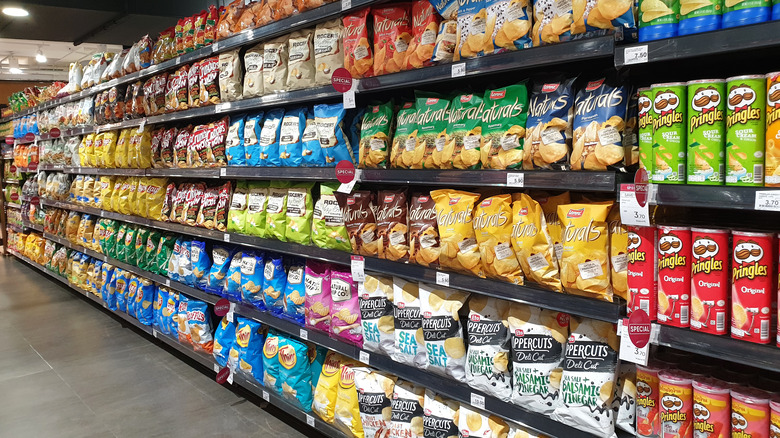New Study Shows Major Food Companies Fail To Improve Products
Since the pandemic gave way to seemingly endless food inflation, our choices at the grocery store have been on our minds and put a pinch in our wallets. As if you didn't have enough on your plate, rising food costs are also having a noticeable effect on our health, prompting consumers to choose between nutritious foods and more affordable options. According to Healthy Food America, changing the culture of a food company that has already found a customer base that keeps coming back for its products as they are is difficult at best, and many food producers fall short of imposed nutritional goals.
When a company reformulates its food products to make them healthier, it has to remove the added salt, sugar, and preservatives that create the taste, texture, and length of shelf-life its customers have come to expect. Such a monumental shift into a healthier direction is not much of a motivating factor for established food producers. Taking the initiative to improve the transparency of prepared foods often falls to consumers and government agencies.
New Food Magazine states that a poll of global consumers showed that 39% of surveyed westerners task food and beverage companies with ensuring a healthy diet. Still, only 14% trust companies as responsible sources of health information. The imbalance between the trust and expectations that we have for food producers poses a steep challenge that many companies are struggling to meet.
Company's healthful improvements are sub-par at best
According to Food Dive, the Biden Administration has been working to improve diet-related health issues and food insecurity by holding big food brands accountable for the nutritional content of their food and the way it is presented to consumers. Couple that with the U.S. Food and Drug Administration's (FDA) new definition of "healthy" and improved guidelines for labeling food products. One might think that companies were well on their way to setting new nutritional standards in the industry. Unfortunately, one would be wrong.
The Access to Nutrition Initiative (ATNI) examined the health policies and products from companies like Kraft Heinz, Campbell Soup, Conagra, and others, assessing product healthiness, marketing practices, labeling, affordability, and possible nutritional reformulation on a scale of one to 10. Unilever had the best score with a 5.5, followed by Kellogg and PepsiCo for increased focus on accountability and healthy reformulations. Coca-Cola and Kraft Heinz had the lowest ranking scores.
Despite the fact that food producers' average score has improved since 2018, the numbers indicate that all companies in the study are underperforming. While companies comply with labeling regulations, only four of the 11 producers have taken any real action to make foods more affordable or reformulate recipes to provide healthier products. Like with food inflation, it seems we have a long way to go before things get better.

